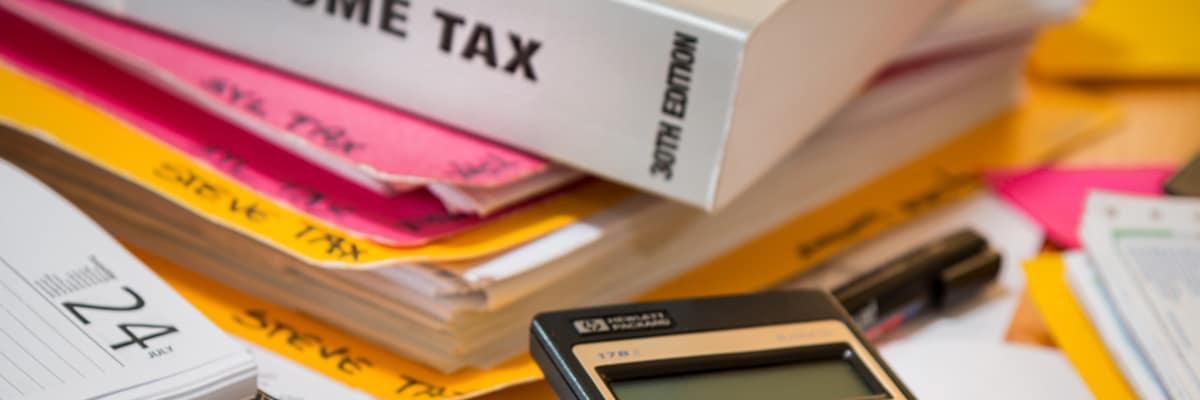It’s the beginning of a new year, and you know what that means: tax time is just around the corner. You’ve likely already started the process of getting your information together and organized. Doing your taxes can be complicated, but there’s nothing like that sweet feeling of relief once you’ve finally submitted.
Unless, of course, you realize you’ve submitted with an error. If you’ve made a mistake on your tax return, you might feel a sense of panic. Will you get in trouble with the IRS? Are they going to come to kick your door down?
Keep calm. Mistakes happen all the time and the IRS has steps in place in the event something like this occurs. If you make a mistake on your tax return, read on. We’ll walk you through what to do next and what you need to know.
The IRS Will Fix Minor Errors
Tax mistakes are more common than we think. The first thing to do is to evaluate the situation.
Consider what kind of mistake you’ve made on your tax return. Is it a simple mistake, like something to do with your math? The IRS is used to scanning your return for mistakes like these, and can often fix simple addition or subtraction issues on their own.
In many cases, online tax software will do these calculations for you and ensure that no simple mistakes are made.
If the mistake you’ve made is truly a minor one, you should sit back and wait. If the IRS thinks there is truly an issue, they will reach out in writing to request more information. In the meantime, panicking is going to do you no good.
If your mistake means that the IRS owes you more money, they’ll simply send you a follow-up check with the amount owed. You don’t even have to wait to cash the first check you receive.
Filing An Amended Return
However, what if the mistake you’ve made is a good deal bigger? For example, what if you’ve failed as the wrong status, or you’ve misrepresented your income? In these instances, you might want to take more immediate action.
In most cases, the IRS will prefer that you file an amended return form to correct these mistakes on your initial tax return. The IRS actually has a number of tools available to ensure that you can work through this process with ease.
There is an interactive questionnaire on the IRS website that will walk you through the mistakes you’ve made. Depending on your answers, the quiz will let you know whether your particular situation calls for an amended tax return form or not.
Working through an amended tax return can be simple or complicated depending on what details you’ve missed or forgotten to include. A missing form is easy enough to send in and have accepted. Business deductions and other such things, however, can be a lot more complicated to manage.
You may need to hire a tax professional who can look through your initial and incorrect tax returns and help submit an amended version.
Popular software like TurboTax provides services that can help you do this kind of thing as well. However, it’s hard to beat the personalized touch of a real person that can get you through this process.
Submitting Your Amended Return
It should be noted that at this time, the IRS does not accept the submission of amended returns through the internet. Instead, you’ll have to send it to them the old-fashioned way: through the mail.
That means printing off the form from the web and sending in a paper copy.
When it comes to amending returns, you can go as far back as the last three years of your taxes. If you’ve left something out and only just realized it now, it’s not too late to go back and make a change. If you want to make changes for more than one year, however, you’ll have to submit those as separate forms.
This helps the IRS to stay organized.
Will I Have To Pay A Penalty?
Quite possibly. It really depends on what kind of mistake you’ve made while doing your tax return. If you’ve made a mistake and short-changed yourself in terms of money the government owes you, you shouldn’t be hit with any penalty.
However, if it’s the reverse? If you’ve made a mistake and owe extra money to the IRS, you may be charged a fee on top of the additional amount that you owe. Most commonly, an individual will have to face a charge of .5% on their existing balance each month.
While this is a low percentage, it can certainly add up over time. This is especially true if you made a mistake and have only realized it many months later. If you owe the government a significant amount of money, they may hit you with a 5% fine for late filing as well.
An experienced tax professional may be able to help you avoid these extra costs, but in some cases, they will be unavoidable. It’s best to talk to a professional about what may or may not be possible based on the particulars of your case.
What To Do About A Mistake On Your Tax Return
If you’ve made a mistake on your tax return, it’s important to take immediate action. Doing so will ensure you keep the extra money you might owe to the IRS to a minimum. If the changes you need to make are complicated, it might be worth reaching out to a tax professional.
Need help with your taxes? Give us a call anytime for assistance.





